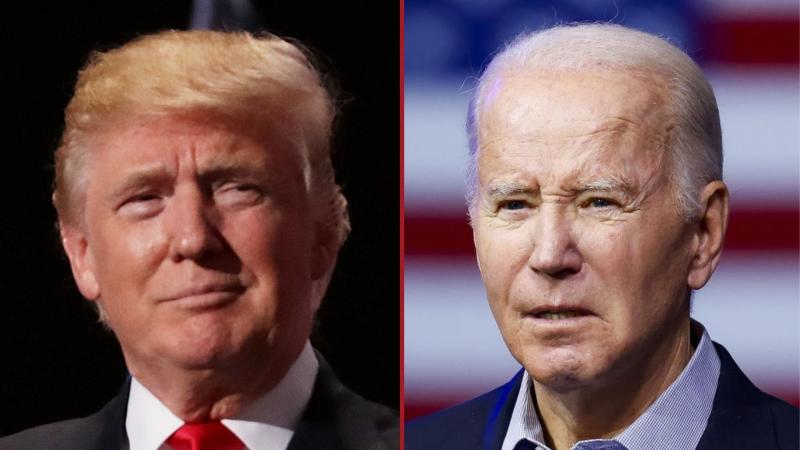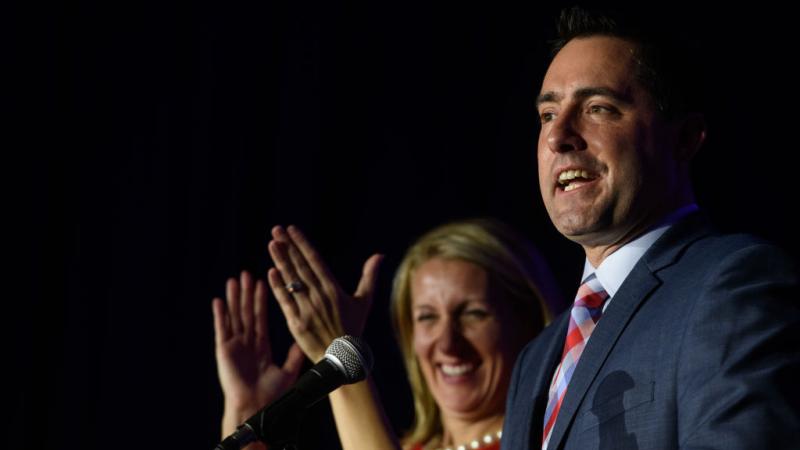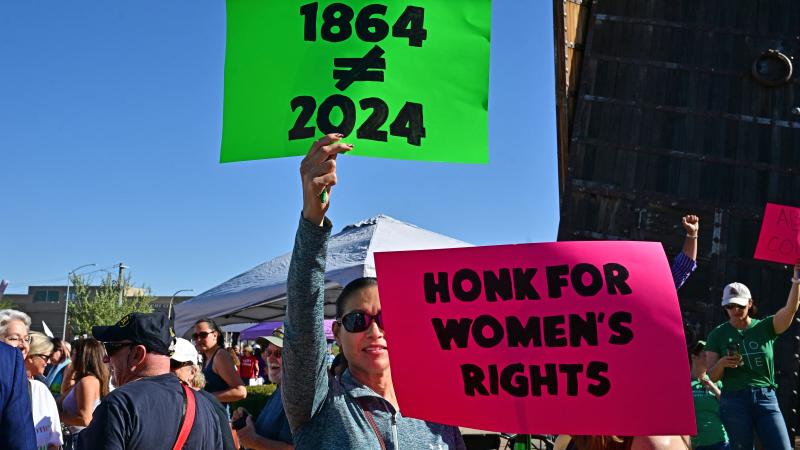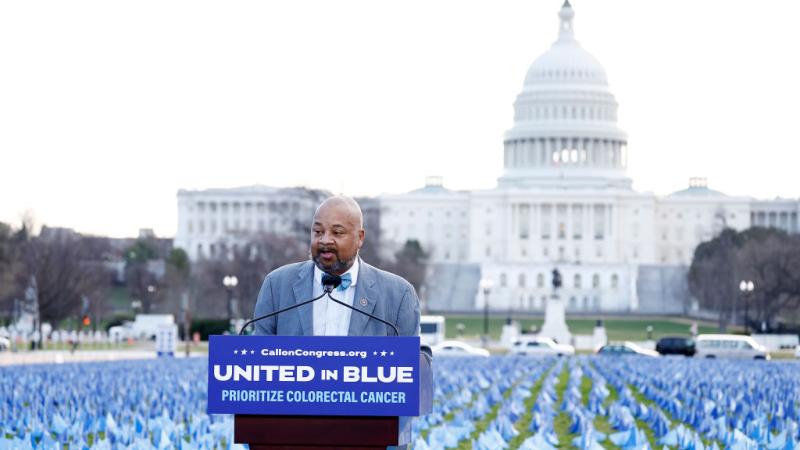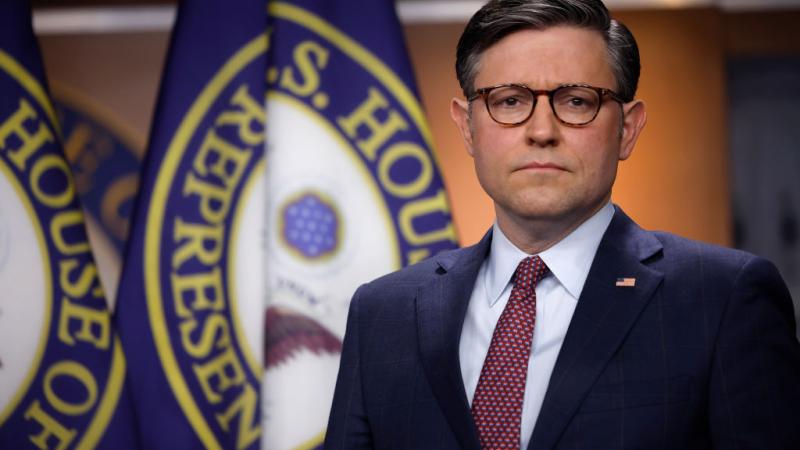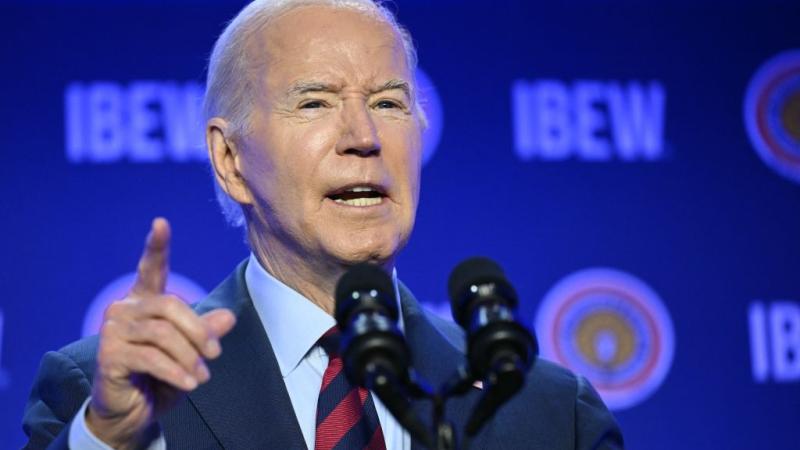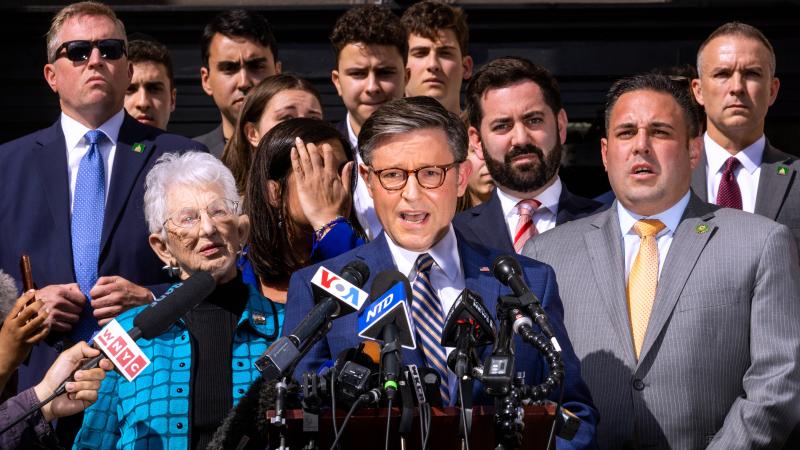Dems' bid to tar 2020 election skeptics belied by left's own history of contesting voting results
"Remember, Democrats objected to counting the electors every single time a Republican was elected president this century," Rep. Jim Jordan (R-Ohio) told the John Solomon Reports podcast.
In December 2020, House Speaker Nancy Pelosi told Democrats that "Republicans are subverting the Constitution by their reckless and fruitless assault on our democracy" in their support of a Texas lawsuit that asked the Supreme Court to block the casting of the electoral votes for several swing states.
But long before former President Donald Trump objected to the certification of the 2020 presidential election, Democrats had a history of vehemently objecting to election results.
Indeed, Democratic politicians have objected to the certification of every presidential election that Republicans have won since 2000.
Rep. Jim Jordan (R-Ohio) made the observation regarding congressional Democrats in his letter on Sunday to the Jan. 6 Select Committee chairman, Rep. Bennie Thompson (D-Miss.), in which he announced he wouldn't cooperate with the committee.
"Remember, Democrats objected to counting the electors every single time a Republican was elected president this century," Jordan told the John Solomon Reports podcast on Monday. "They objected on January 6, 2001, January 6, 2005, January 6, 2017. In fact, on January 6, 2017, they objected to more states than we Republicans did on January 6, 2021 ... but they never seem to want to acknowledge that fact."
Democrats objected to the certification of Florida's electoral votes in 2001, Ohio's in 2005, and the votes of Alabama, Florida, Georgia, Michigan, New York, North Carolina, South Carolina, West Virginia, Wisconsin, and Wyoming in 2017. In 2021, Republicans objected to the certification of the electoral votes for Arizona, Georgia, Michigan, Nevada, Pennsylvania, and Wisconsin.
In 2001, Rep. Maxine Waters (D-Calif.) objected to the certification of Florida's electoral college votes but didn't have a senator to sign onto the objection, the Daily Signal reported.
"The objection is in writing, and I do not care that it is not signed by a member of the Senate," she said.
"The chair will advise that the rules do care," said then-Vice President Al Gore, who oversaw certification of his loss to George W. Bush in that joint session of Congress.
After then-Sen. Barbara Boxer (D-Calif.) joined then-Rep. Stephanie Tubbs Jones (D-Ohio) in objecting to Ohio's electoral votes in 2005, Sen. Dick Durbin (D-Ill.) said: "Some may criticize our colleague from California for bringing us here for this brief debate. I thank her for doing that, because it gives members an opportunity once again on a bipartisan basis to look at a challenge that we face not just in the last election in one state, but in many states."
Despite the praise, Durbin voted to certify Ohio's electoral votes.
In 2020, however, after Sen. Josh Hawley (R-Mo.) announced that he'd object to Pennsylvania's electoral votes, Durbin, by then the second-ranking Democrat in the Senate, said, "This won't be taken seriously, nor should it be."
In 2017, Rep. Pramila Jayapal (D-Wash.), now chair of the Congressional Progressive Caucus, objected to Georgia's electoral college votes without support from a senator. "It is over," she was told by then-Vice President Joe Biden, who went on to cut off more Democratic representatives who also attempted to object to the certification of states' electoral votes without support from senators, CNN reported.
Some Democrats also offered support for Stacey Abrams' claim that then-Georgia Secretary of State Brian Kemp didn't win fairly in the state's 2018 gubernatorial election. She has become a prominent public face of her party since that election loss, as she spoke at the 2020 Democratic National Convention.
Following the 2018 Georgia gubernatorial election, which Kemp won by about 55,000 votes, Abrams said she was the true winner and refused to officially concede, claiming that voter suppression rigged the election, according to Fox News.
Last month, Abrams told MSNBC's Rachel Maddow regarding the 2018 election: "On the 16th of November when I acknowledged that I would not become governor, that he had won the election, I did not challenge the outcome of the election unlike some recent folks did. What I said was that the system was not fair, and leaders challenge systems. Leaders say we can do better. And that's what I declared."
Abrams, who's running again for Georgia governor, added, "I could not in good conscience say that in order to protect my political future I'm going to be silent about the political present, which is that we have a system under a leader that sought to keep people from casting their ballot, that threw those ballots out, that said that voter suppression was a viable tactic for winning elections."
The Facts Inside Our Reporter's Notebook
Links
- after the Capitol riot last year
- Fox News reported
- according to Breitbart News
- wouldn't cooperate with the committee
- Florida's electoral votes in 2001
- Ohio's in 2005
- in 2017
- Republicans objected to the certification of the electoral votes
- Daily Signal reported
- according to Fox News


